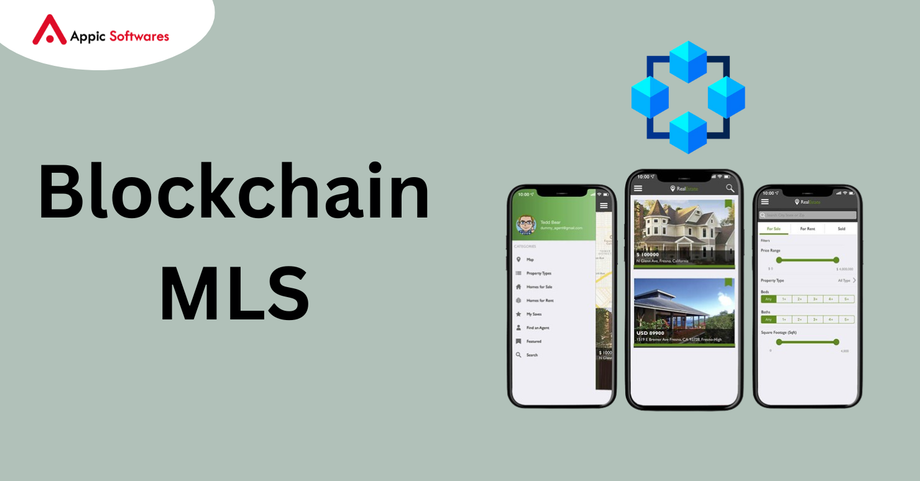The Multiple Listing Service (MLS) plays a vital role in connecting buyers and sellers in the real estate market. However, the traditional MLS system faces limitations, including data silos, lack of transparency, and inefficiencies. Blockchain technology, with its secure and distributed ledger system, offers a glimpse into a future of a more efficient, transparent, and collaborative MLS landscape.
This blog dives into the potential of blockchain in MLS systems, exploring how it can address current challenges, the potential benefits it offers, and the current state of adoption within the real estate industry.
Understanding MLS: The Current Landscape
The MLS is a database shared by real estate brokers and agents, containing listings of properties for sale. It streamlines the process for agents to represent buyer clients and exposes sellers' properties to a wider pool of potential buyers. However, the traditional MLS system has limitations:
- Data Silos and Limited Accessibility: - Information is often restricted to specific MLS systems, creating data silos and hindering collaboration between brokers across different regions.
- Lack of Transparency: - Data accuracy and consistency can be a concern, as updates might not be reflected across all MLS systems simultaneously.
- Inefficiencies: - The current system relies on manual data entry and verification, leading to potential errors and delays.
Blockchain in Action: Transforming the MLS Ecosystem
Blockchain technology has the potential to revolutionize the way the MLS operates:
- Decentralized Ledger: Enhanced Transparency and Security - Imagine a secure, shared ledger accessible to authorized participants. This blockchain ledger would store property data, including listing information, ownership history, and transaction records. The immutability and cryptographic nature of blockchain make it highly resistant to tampering, ensuring data accuracy and security.
- Improved Data Sharing and Collaboration - With a single source of truth on the blockchain, data can be shared seamlessly across different MLS systems. This fosters collaboration between brokers and agents across geographical boundaries, potentially increasing buyer exposure for properties.
- Streamlined Processes with Smart Contracts - Smart contracts, self-executing agreements coded onto the blockchain, can automate various tasks within the MLS system. These contracts can handle tasks like triggering automatic commission payments upon successful closings or streamlining document verification processes.
- Enhanced Traceability and Auditability - A complete and tamper-proof record of all property data and transactions on the blockchain allows for better traceability and auditability. This fosters trust and accountability among all stakeholders involved in a real estate transaction.
Benefits of Blockchain-Powered MLS
The integration of blockchain technology within the MLS system offers a multitude of benefits:
- Increased Efficiency: - Automating tasks through smart contracts and streamlining data sharing significantly reduces administrative burden for brokers and agents.
- Enhanced Transparency: - A shared ledger ensures all authorized participants have access to the same accurate and up-to-date property information.
- Improved Security: - The immutability of blockchain safeguards sensitive property data from fraud and unauthorized access.
- Reduced Costs: - Streamlining processes and eliminating data redundancy can potentially lead to cost savings for brokers, agents, and ultimately, consumers.
- Greater Market Reach: - Improved data sharing allows properties to be exposed to a wider pool of potential buyers across different MLS regions.
The Current Landscape: Exploring the Potential
While the potential of blockchain in the MLS system is undeniable, widespread adoption is still in its early stages. Here's a look at the current landscape:
- Pilot Programs and Proof-of-Concepts: - Several pilot programs and proof-of-concept projects are underway to explore the integration of blockchain technology within the MLS framework.
- Industry Collaboration: - Real estate organizations and technology companies are collaborating to develop blockchain-based solutions for the MLS system.
- Regulatory Considerations: - Regulatory frameworks surrounding blockchain-based real estate transactions are still evolving, creating some uncertainty for stakeholders.
Conclusion
Moreover, if you are looking for a Real Estate app development company then you should checkout Appic Softwares, a leading Real Estate app development company.

